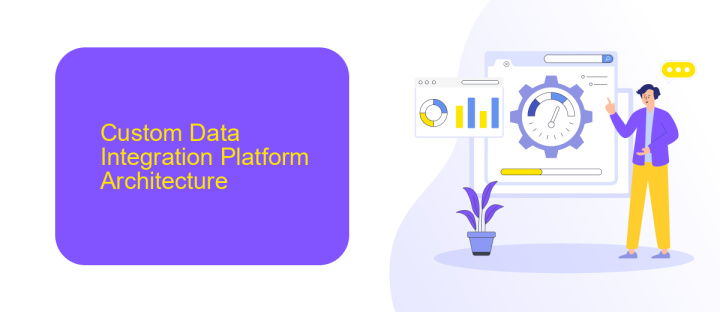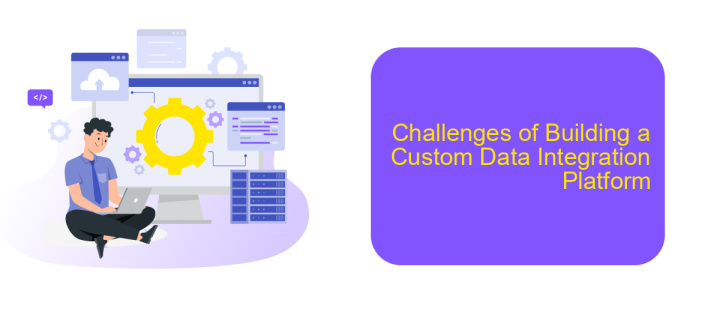Custom Data Integration Platform
In today's data-driven world, businesses require seamless integration of diverse data sources to stay competitive. A Custom Data Integration Platform offers a tailored solution to merge disparate data streams, ensuring real-time access and comprehensive insights. This article explores the benefits, features, and implementation strategies of custom data integration platforms, helping organizations to optimize their data management and drive informed decision-making.
Introduction
In today's rapidly evolving digital landscape, businesses are increasingly reliant on data integration to streamline operations and enhance decision-making processes. A Custom Data Integration Platform offers a tailored solution to meet the unique needs of organizations, enabling seamless connectivity between diverse data sources and applications.
- Automated data synchronization
- Real-time data access
- Enhanced data accuracy
- Scalability to accommodate business growth
- Improved operational efficiency
Platforms like ApiX-Drive facilitate the setup of these integrations by providing user-friendly interfaces and robust functionalities. With ApiX-Drive, businesses can effortlessly connect various applications, automate workflows, and ensure that data flows smoothly across systems. This not only saves time but also reduces the risk of human error, allowing teams to focus on strategic initiatives rather than manual data management tasks.
Custom Data Integration Platform Architecture

The architecture of a Custom Data Integration Platform is designed to ensure seamless data flow between disparate systems. It typically comprises several key components, including data connectors, transformation engines, and orchestration layers. Data connectors are responsible for establishing secure connections to various data sources, whether they are databases, APIs, or cloud storage services. The transformation engine processes and converts raw data into a standardized format, ensuring compatibility across different systems. Finally, the orchestration layer manages the workflow, coordinating the data movement and ensuring timely and accurate data delivery.
To facilitate the setup and management of these integrations, platforms like ApiX-Drive offer robust tools and services. ApiX-Drive simplifies the integration process by providing pre-built connectors and an intuitive interface for configuring data flows. This reduces the need for extensive coding and allows for quicker deployment of integration solutions. Additionally, ApiX-Drive supports real-time data synchronization, ensuring that data is always up-to-date across all connected systems. By leveraging such services, businesses can achieve efficient and reliable data integration, tailored to their specific needs.
Benefits of a Custom Data Integration Platform

A custom data integration platform offers numerous advantages for businesses looking to streamline their data processes and improve overall efficiency. By tailoring the platform to specific organizational needs, companies can ensure seamless integration of various data sources and systems.
- Enhanced Flexibility: Custom platforms can be designed to integrate with a wide range of data sources, including legacy systems, cloud services, and third-party applications like ApiX-Drive, which simplifies the integration process.
- Scalability: As businesses grow, their data integration needs evolve. A custom solution can scale accordingly, accommodating increasing data volumes and more complex integration requirements.
- Improved Data Quality: Custom platforms can include tailored data validation and cleansing processes, ensuring that the integrated data is accurate and reliable.
- Cost Efficiency: While initial development may require investment, a custom platform can reduce long-term costs by eliminating the need for multiple off-the-shelf solutions and minimizing manual data handling.
- Better Security: Custom solutions can incorporate specific security measures tailored to the organization's requirements, ensuring that sensitive data is protected during integration.
In summary, a custom data integration platform provides businesses with the flexibility, scalability, and security needed to manage their data effectively. By leveraging tools like ApiX-Drive, organizations can further simplify the integration process, ensuring a seamless and efficient data flow.
Challenges of Building a Custom Data Integration Platform

Building a custom data integration platform can be a complex and challenging process. One of the primary challenges is ensuring data consistency and accuracy across multiple systems. Data from different sources often come in various formats and structures, making it difficult to harmonize and integrate them seamlessly.
Another significant challenge is managing the scalability and performance of the platform. As data volumes grow, the platform must be able to handle increased loads without compromising on speed or reliability. This requires careful planning and optimization of resources to maintain efficient data processing and integration.
- Data consistency and accuracy
- Scalability and performance
- Security and compliance
- Integration with diverse data sources
Utilizing services like ApiX-Drive can help mitigate some of these challenges by providing pre-built connectors and automation tools for data integration. This can significantly reduce development time and ensure a more robust and reliable integration process. However, even with such tools, careful planning and execution are essential to build a successful custom data integration platform.
Best Practices for Building a Custom Data Integration Platform
When building a custom data integration platform, it's crucial to prioritize scalability and flexibility from the outset. This ensures that the platform can grow with your business and adapt to evolving data needs. Opt for a modular architecture that allows for easy addition and removal of components. This approach not only simplifies maintenance but also enhances the platform's ability to integrate with various data sources and destinations. Additionally, implementing robust error handling and logging mechanisms will help in quickly identifying and resolving issues, ensuring smooth data flow.
Another best practice is to leverage existing integration tools and services, such as ApiX-Drive, to streamline the development process. ApiX-Drive offers a user-friendly interface and a wide range of pre-built connectors, making it easier to set up and manage integrations without extensive coding. By utilizing such tools, you can significantly reduce development time and focus on customizing the platform to meet your specific business requirements. Regularly updating and testing the platform is also essential to maintain data integrity and security, ensuring that your integrations remain reliable and efficient.
FAQ
What is a Custom Data Integration Platform?
How can I benefit from using a Custom Data Integration Platform?
What types of data sources can be integrated using a Custom Data Integration Platform?
How difficult is it to set up and maintain a Custom Data Integration Platform?
Can I automate workflows with a Custom Data Integration Platform?
Strive to take your business to the next level, achieve your goals faster and more efficiently? Apix-Drive is your reliable assistant for these tasks. An online service and application connector will help you automate key business processes and get rid of the routine. You and your employees will free up time for important core tasks. Try Apix-Drive features for free to see the effectiveness of the online connector for yourself.

